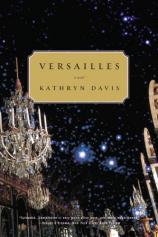Reading Group Guide
Discussion Questions
Versailles: A Novel

1. Marie Antoinette is commonly perceived as the callous, vainglorious queen who purportedly said of the peasants, "Let them eat cake." How does the depiction of Antoinette in this narrative differ from that image? Has reading the novel changed your opinion of Antoinette?
2. The voice of Antoinette is introduced as her soul disembodied from her physical self. But so much of what we know of her and how she views herself is informed by her beauty and physical presence. To what extent do you think a person is shaped by an inner self and to what extent by the regard of others?
3. Throughout the novel, the structure and layout of Versailles are described in great detail. How do these details both add to a picture of the palace's grand extravagance and create a sense of limitation and claustrophobia?
4. During her first pregnancy Antoinette finds herself content with her own ruminations and indifferent to state affairs. She says the very definition of being content may be "the heart safely secluded, a world unto itself"-unlike being in the grip of either love, which is transporting, or of pleasure, which must be sought after. Do you agree with these definitions, and which state, if any, would you choose to live in? Can contentedness be as dangerous as the pursuit of love or pleasure? How does Versailles itself represent each state of being?
5. Antoinette believes every life has a shape. How would you characterize her life? Was she powerless to change the course of it? In Antoinette's world of birthright and hierarchy, were choice and fate indistinguishable? How would you describe the shape of your own life thus far, and do you think people's characters remain generally static from birth to death?
6. Antoinette says that ultimately it doesn't matter if Axel was her lover in the physical sense or not, that it matters only to historians and gossips. Do you think it matters? How would you compare Antoinette's love for Axel to her love for Louis?
7. What is the effect of the miniplays and vignettes on the narrative as a whole? Do they allow a different perspective on Antoinette, a more cohesive reporting of history?
8. Kathryn Davis, in the essay that precedes these questions, says that she's an eighteenth-century girl. To what century do you belong? Would you have wanted to live in a different time?
Versailles: A Novel
- Publication Date: September 5, 2003
- Paperback: 240 pages
- Publisher: Back Bay Books
- ISBN-10: 0316737615
- ISBN-13: 9780316737616








